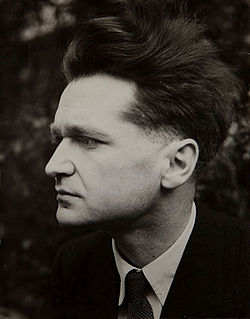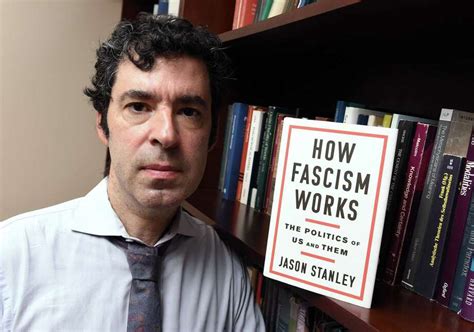A Quote by Emil Cioran
We interest others by the misfortune we spread around us.
Related Quotes
Some philosophers are drawn to the subject [of philosophy] via their interest in the nature and structure of the world external to us. Others are drawn to it by an interest in the capacities that make humans distinctive in the world. I am a philosopher of the latter sort. My work thus far has been clustered around the nexus of knowledge, communication, and human action.
The misfortune of others is our misfortune. Our happiness is the happiness of others. To see ourselves in others and feel an inner oneness and sense of unity with them represents a fundamental revolution in the way we view and live our lives. Therefore, discriminating against another person is the same as discriminating against oneself. When we hurt another, we are hurting ourselves. And when we respect others, we respect and elevate our own lives as well.
There is no self-interest completely unrelated to others' interests. Due to the fundamental interconnectedness which lies at the heart of reality, your interest is also my interest. From this it becomes clear that "my" interest and "your" interest are intimately connected. In a deep sense, they converge.
The first beneficiary of compassion is always oneself. When compassion, or warmheartedness, arises in us and our focus shifts away from our own narrow self-interest, it is as if we open an inner door. It reduces fear, boosts confidence and brings us inner strength. By reducing distrust, it opens us to others and brings us a sense of connection to others, and sense of purpose and meaning in life.
... But all the feelings that evoke in us the joy or the misfortune of a real person are only produced in us through the intermediary of an image of that joy or that misfortune; the ingeniousness of the first novelist was in understanding that, in the apparatus of our emotions, since the image is the only essential element, the simplification which consists of purely and simply suppressing the factual characters is a definitive improvement.
In the past, destruction of your neighbour might have been considered a victory, but today we are all interdependent. We live in a global economy; we face problems like climate change that affect us all. The 7 billion human beings alive today belong to one human family. In the context that others' interests are in our interest and our interest is in their interest, the use of force is self-destructive.
When we love others, we naturally want to talk about them, we want to show them off, like emotional trophies. We invest them with a power to do to others what they do to us; a vain hope, as the lovers of others are rarely of much interest to us. But we listen in patience, as friends must, and as Isabel now did, refraining from comment, other than to encourage the release of the story and the attendant confession of human frailty and hope.
Our sense of identity is in large measure conferred on us by others in the ways they treat or mistreat us, recognize or ignore us, praise us or punish us. Some people make us timid and shy; others elicit our sex appeal and dominance. In some groups we are made leaders, while in others we are reduced to being followers. We come to live up to or down to the expectations others have of us.





































